Some helped, others hooked: calls for medicinal cannabis shake-up
Australia’s medicinal cannabis industry is booming, transforming thousands of lives – some for the better and others for the worse. Is it a legalised ‘drugs racket’? And if so, how do we tackle it?
Regulation of Australia’s runaway almost $1bn medicinal cannabis industry is failing, with claims of legalised “drug rackets” and a lack of local testing of surging imports.
The extraordinary boom since medical cannabis was legalised in 2016 has created hundreds of jobs in regional areas and helped more than a million Australians with chronic pain and other stubborn conditions.
In industry terms it’s a homegrown success story, with the sector expanding an estimated 25 per cent to 30 per cent a year and moving into a merger and acquisitions phase.
However, some cannabis prescribers fear confidence in the medication – used by an estimated 700,000 Australians in the 12 months to February 2024 – is being undermined by gaps in regulations.
Some doctors say unethical MC telehealth clinics are facilitating addicts’ access to high THC products on flimsy medical grounds.
With MC now cheaper than black market dope and of higher THC potency than ever, doctors describe some telehealth clinics as a “racket”.
In one case, a single medico was found to have prescribed high THC dried cannabis to almost 12,000 patients in a six-month period.
At least one medical insurer – MDA National – is refusing to insure clinics that both prescribe and supply MC products, describing the practice as “dangerous”.
And Australia’s largest grower and manufacturer, award-winning Tasmanian Botanics, is warning a flood of imports is not being tested in Australian laboratories approved by the Therapeutic Goods Administration.
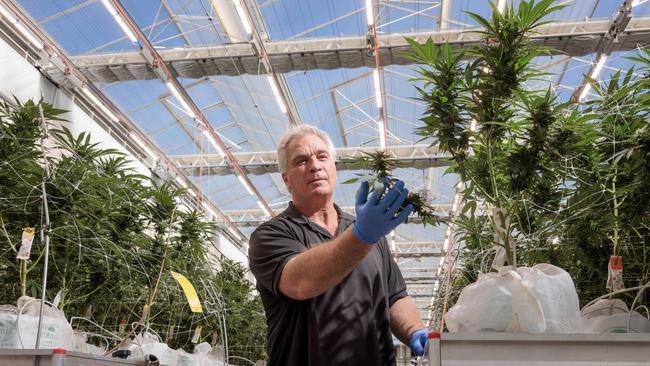
Critics and advocates alike are calling for reforms to ensure a drug that has positively transformed the lives of so many Australians, from cancer patients to children with epilepsy, is not further hijacked by “bad actors”.
Queensland GP Nic Giummarra has prescribed MC products to hundreds of patients, but is “stepping away” out of concern about a lack of adequate regulation and a fragmentation of healthcare.
He says MC is a “valuable tool” but is being prescribed by some clinics with too little care, especially for long-term addiction.
“Initially I found … my patients just got better – every day they were telling me how it had changed their lives,” Dr Giummarra said.
“I never had a side effect (reported). I got them off their opioids and off their benzodiazepines, and often people stopped their mental health medications and felt so much better.
“And then over time, more recently, I had more and more … patients I inherited from other doctors and clinics totally addicted to huge quantities of cannabis, particularly flower or dried herb.”
These were often young men who had been self-medicating illicitly and had switched to MC.
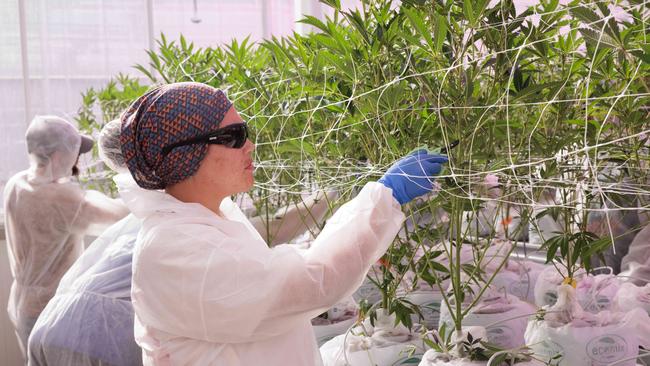
“There are a few major clinics that promote and market illegally on social media and offer free consults, are tied to a pharmacy and prescribe their own products,” he said.
“They would give people almost unlimited flower. And people become really … dependent. From my perspective, that is really unethical and dangerous.
“I’m having a lot of patients just recently who are saying they’re having way too much THC, they’re losing grip on reality and need to come down off it.”
This was partly due to the success of growers in producing very high-potency THC crops. “The average joint at the Woodstock festival (in 1969) was about 3 per cent,” he said. “Now growers are hitting 30 per cent.
“Never before in human history have we had such strong cannabis acting on the brain. And we honestly don’t know what that’s going to do, particularly to this group of probably hundreds of thousands of young men.”
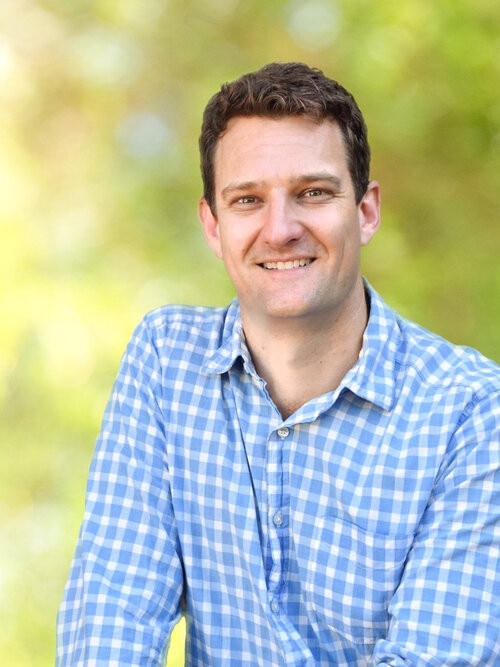
While still prescribing MC to some existing patients who found it enormously beneficial, Dr Giummarra said he no longer “felt safe in the current regulatory environment”.
The MC sector had essentially split into two very different industries – one medically focused and the other facilitating drug use.
About 65 per cent of scripts were for pain, 25 per cent for anxiety and 10 per cent for insomnia.
But he said doctors had to guard against recreational cannabis users “masquerading” with medical conditions to secure scripts.
“People can tell you stories – they’ve got widespread anxiety, insomnia and pain; they’ve seen other doctors but can’t remember where and don’t have the reports,” Dr Giummarra said.
“According to the TGA, they’re all legitimate reasons to try MC. You want to help people, but it’s become a slippery slope.”
The situation was undermining confidence in MC, which he believed should remain a “tool” in doctors’ medical kits, particularly given the downsides of opioids and anti-inflammatories for pain relief.
“If someone has a chronic pain condition, cannabis is ultimately a fantastic medicine when used correctly,” he said.
“I’ve helped people with their pain, their sleep, their livelihoods, their marriages, their relationships. They’ve gone back to work.
“But I just can’t stand having these younger men addicted to cannabis using it is a crutch. Instead of dealing with their childhood trauma, their grief or their issues, they just inhale copious amounts of cannabis. It isn’t right. It isn’t ethical.”
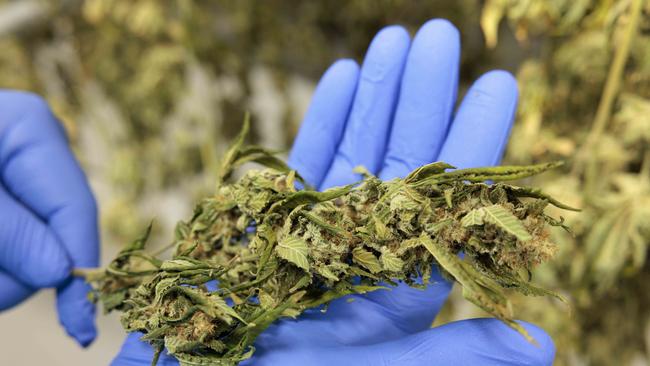
The system was creating addicts.
“The industry generally is forgetting that people are not supposed to stay on this stuff forever or to use high doses every single day,” he said.
Several other doctors related similar concerns to The Australian. All were concerned no regulator had sufficient oversight, due to the way the industry had developed, outside the normal pharmaceutical evaluation and approval system.
“We are seeing 60 per cent, 80 per cent, 98 per cent THC preparations being made available on prescription, increasingly with absolutely no scrutiny at all,” former Australian Medical Association president Michael Gannon said. “It’s a legalised cannabis prescribing racket.”
Dr Gannon, also president of professional indemnity provider MDA National, said his company had decided not to insure “vertically integrated” MC telehealth clinics – those that both produce and prescribe cannabis. “We think they’re dangerous,” he said.
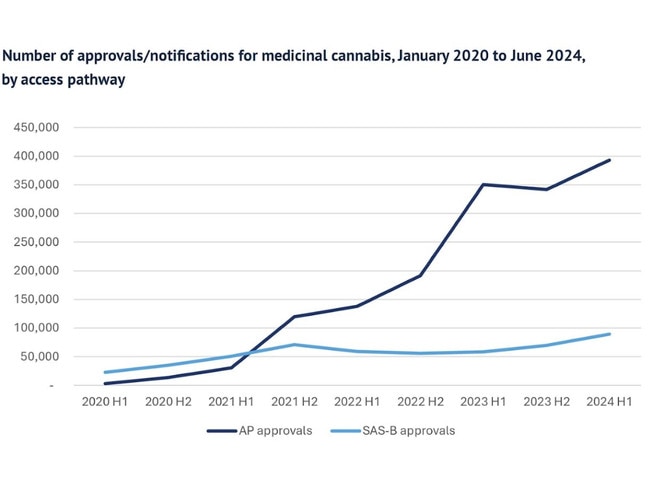
The Australian Health Practitioner Regulation Agency has acknowledged such concerns and in July 2024 launched a “rapid regulatory response unit” with a focus on MC and weight-loss telehealth clinics.
Ahpra says it has issued 12 MC practitioners with cautions or conditions. However, most of the 270 complaints it has received relate to “access to medication, fees and costs, and being prescribed lower doses than … requested”.
Some doctors say Ahpra is not equipped to tackle the issue.
“Really Ahpra can only investigate a practitioner if there’s a report against that practitioner, but if you’re a 22-year-old male getting 90g of cannabis from your doctor you’re not going to report them – you’re happy about it,” Dr Giummarra said.
Only one MC product is approved for supply in Australia, but the TGA has several schemes allowing doctors to access about 500 unapproved products for patients outside the Pharmaceutical Benefits Scheme.
Because these products are unapproved, the onus falls on doctors to take responsibility for their prescribing.
Several doctors told The Australian they were simply unwilling to do so, given the paucity of clinical trials to support MC’s efficacy and their own lack of knowledge about the products and access schemes.
This boycott, however understandable, sends many patients to the single-purpose telehealth clinics.
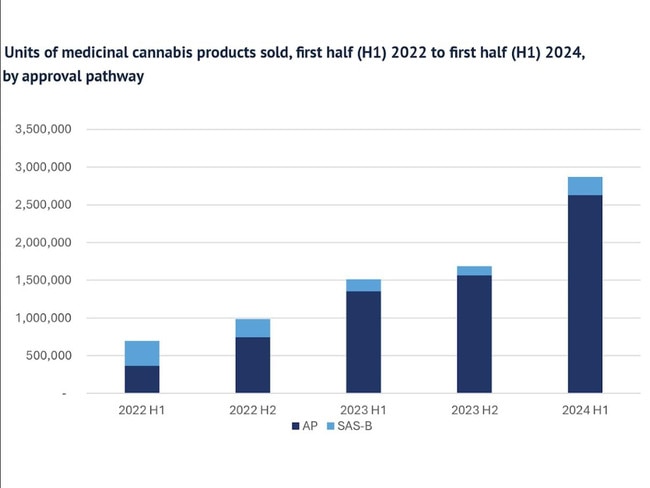
Growers, manufacturers and suppliers of MC would like to see more family GPs get involved to ensure the best outcomes for patients.
“The take-up from general GPs has been slow and spasmodic and as a consequence there have been other modes of prescribing that have come into fashion,” Tasmanian Botanics chief operating officer Craig Knight said. “Some of those clinics are good; some are diabolical.”
He shared concerns about some clinics providing ready access to MC to anyone claiming chronic pain, and then sending it – via a connected pharmacy – to their door. “It’s a good business model; it’s not a good health model,” he said.
However, many had improved their practices and there remained a role for specialised clinics while so many GPs boycotted the system, Mr Knight said.
Tasmanian Botanics’ well-run, large complex north of Hobart produces 4500 tonnes of MC indoors and 1500 tonnes outdoors, employing 150 in a low socio-economic area and sponsoring the local football team.
“People who work here come in every day feeling good because they know they are helping thousands of Australians relieve their suffering,” Mr Knight said.
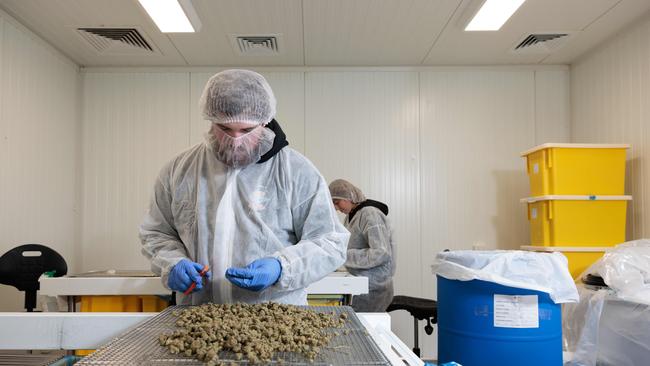
The Office of Drug Control lists more than 40 companies licensed to grow, produce or manufacture MC in Australia. The industry is impressive in its ingenuity and scale and is continuing to boom.
MC products sold in Australia rose from under one million in the second half of 2022 to 2.87 million in the first half of 2024.
The value of those products rose from $234m in all of 2022 to $402m in just the first six months of 2024.
Medicinal Cannabis Industry Australia agrees questionable practices by some telehealth clinics is an issue but argues it is being tackled by Ahpra, which has reviewed prescribing guidelines.
“It’s very clear what a prescriber can and can’t do – if any prescriber has any financial incentive involved as the product sponsor or owner it requires full disclosure to the patient,” association executive officer Patty Holmes said.
The industry said one answer was to improve GP training and education, with graduates currently emerging from medical school with little or no understanding of MC, she said.
Doctors, however, argue for far stronger, clearer prescribing guidelines and a more tailored regulatory approach.
“We have helped hundreds of thousands of patients with MC,” Dr Giummarra said. “We’ve gone from no availability in 2017 … to it being now so available you can have a free consultation and cannabis sent to your door.
“The pendulum just needs to swing back to the middle. Because if we continue like this regular doctors, pain specialists, psychiatrists, paediatricians will just say ‘this is crazy, this is harmful’ and we will put ourselves back 20 years.”
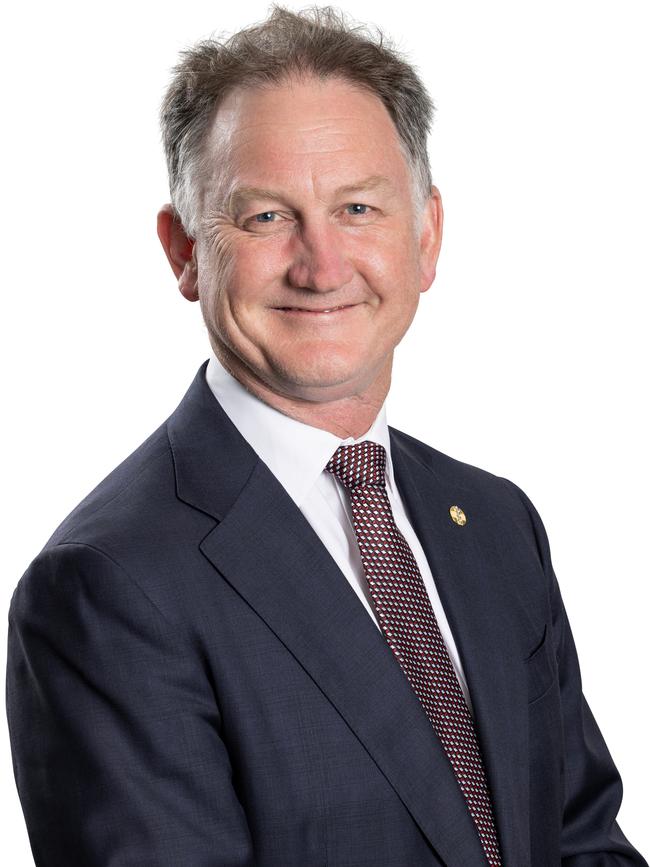
An Ahpra spokesman said it held a forum on MC in 2024 and issued a statement on prescribing responsibilities.
“We are continuing to work closely with other regulators on system-wide approaches to support safe telehealth prescribing and to identify areas of practice where practitioners may need further guidance,” the spokesman said.
Its rapid response unit was continuing to focus on high-volume prescribing.
“This unit works closely with other regulators and continues to monitor and act on potentially unsafe practices,” the spokesman said.
“(Medical) boards have taken regulatory action, including immediate action to suspend or impose conditions on registration, and caution practitioners where required to ensure safe, professional practice.”
Another concern for local growers and manufacturers is a flood of imports in recent years, mostly from Canada, which some accuse of “dumping” excess MC product on our shores, but also from Asia.
In 2023, imports grew by more than 40 per cent and according to industry the trend has continued.
Mr Knight, at Tasmanian Botanics, which has tripled production and plans to double it again within two years, and invested heavily in new glasshouses, said such investment was undermined by a lack of level playing field.
He said imports did not have to be tested at Australian-licensed, TGA-approved laboratories, unlike the local product.
“They haven’t had to go through the same regulatory costs that we’ve had to – that’s unfair and if you’re a cultivator quite devastating,” Mr Knight said.
A TGA spokesman said it could not legally mandate local testing of imports but did require importers to comply with the same standards – and audited to ensure compliance.



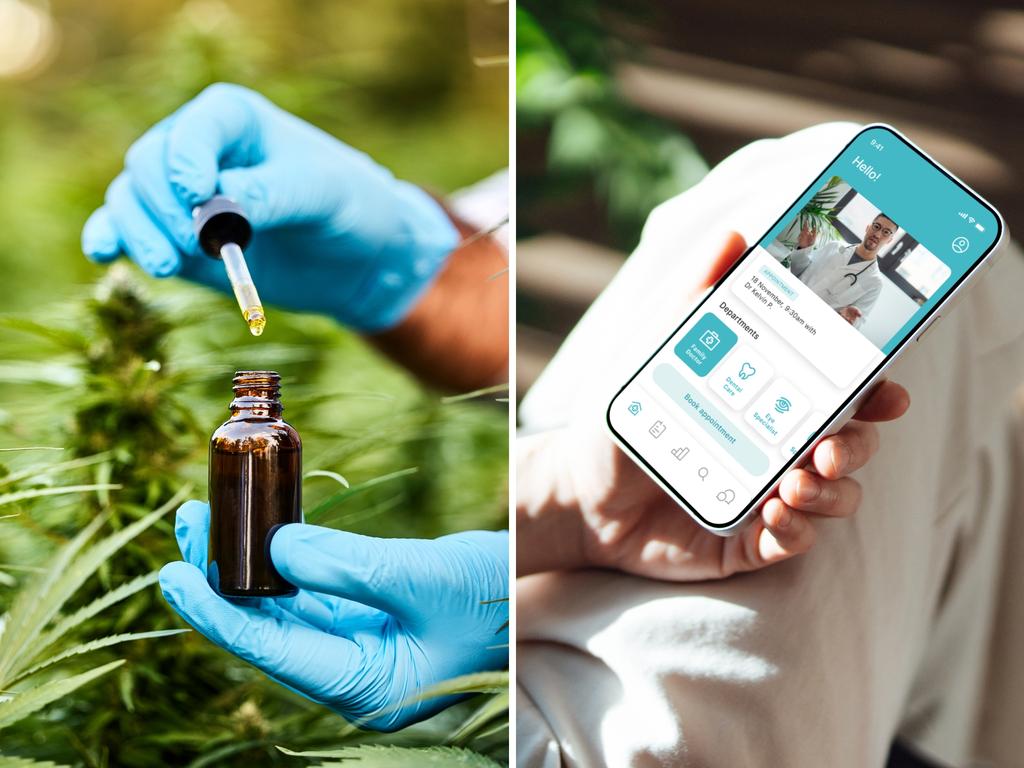


To join the conversation, please log in. Don't have an account? Register
Join the conversation, you are commenting as Logout